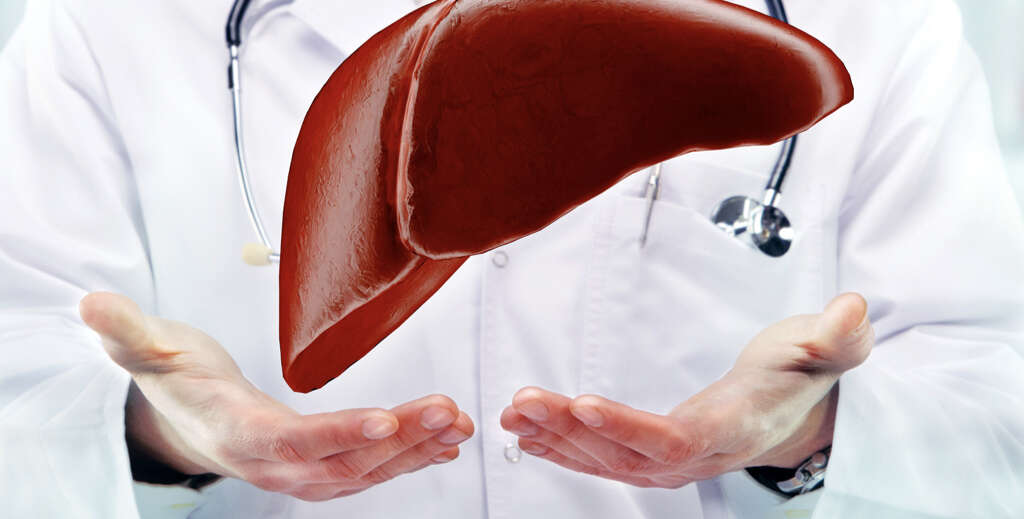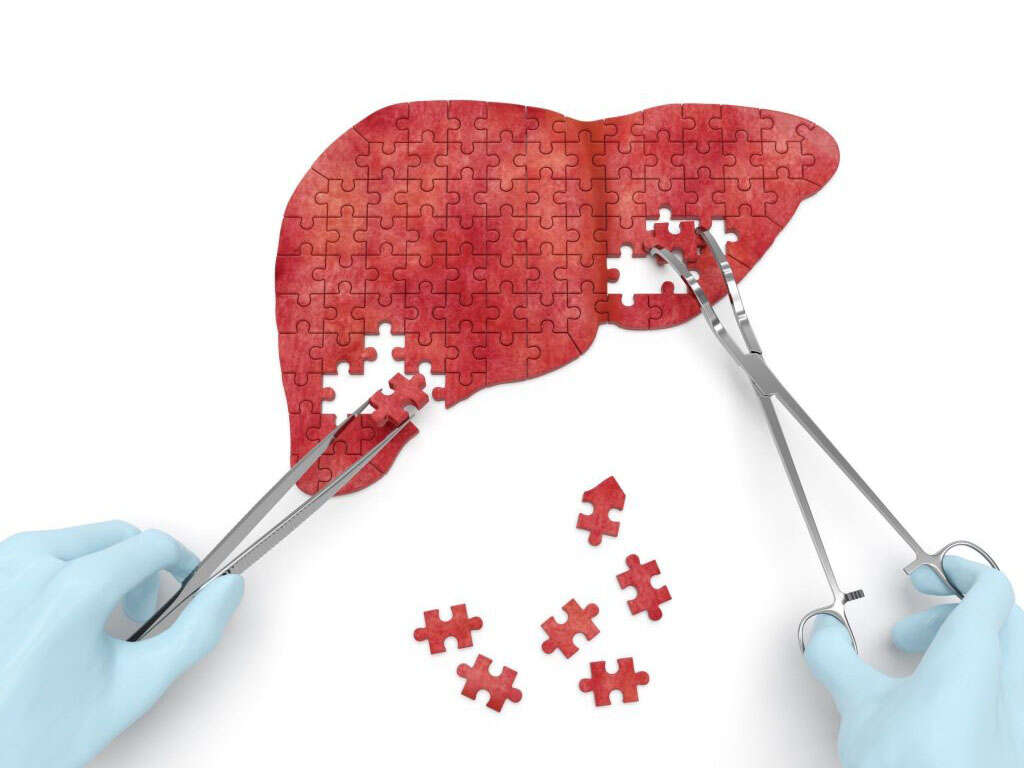What Is Hepatic Encephalopathy?
Your brain and liver and more connected than you may think. When the liver is damaged or diseased and can no longer remove toxins from the blood adequately, the brain can be affected. This is because toxins can build up in the bloodstream when the liver is out of commission, and those toxins can travel to the brain.
When this happens, it can lead to brain damage. In some cases, the brain damage is referred to as hepatic encephalopathy. When treated early, hepatic encephalopathy can be reversed and often resolves within days or weeks. However, it does require emergency care and should not be treated lightly.

1. What Is Hepatic Encephalopathy?
Hepatic encephalopathy is a loss of brain function that occurs when a diseased or damaged liver no longer removes toxins from the blood. Without removal, the toxins in the bloodstream travel to various areas of the body, including the brain.
Once in the brain, toxic blood can cause a decline in brain function. Fortunately, brain function can often be restored with prompt treatment and is usually a temporary condition. Complete recovery is possible if the encephalopathy is triggered by an underlying cause that is reversible. For permanent underlying causes, continuous treatment may be required to keep the condition under control.

2. How Common Is Hepatic Encephalopathy?
Hepatic encephalopathy is rare, and there are less than 200,000 cases diagnosed each year in the United States. Its onset may be gradual or sudden. It often occurs in those who have acute or chronic liver disease. For this reason, more than 40% of those who have cirrhosis will likely develop hepatic encephalopathy at some point.
Hepatic encephalopathy affects males and females equally, and it can present in people of any age. However, it does not occur in people who do not have chronic or acute liver disease. It is estimated that between 24%-53% of individuals who have their livers bypassed by portosystemic shunts (without liver disease) develop hepatic encephalopathy.

3. What Are Symptoms of Hepatic Encephalopathy?
Hepatic encephalopathy can present many different symptoms. Some affect the brain, while others tend to impact overall health. Early symptoms include foul breath with a musty or sweet odor, confusion, forgetfulness, and short attention span. Mood swings and changes in personality may also be apparent during the early stages of hepatic encephalopathy.
When the condition becomes more advanced, symptoms tend to get more severe. They may include flapping hand tremors, slurred speech, disorientation, and inappropriate behavior. In the most severe cases of hepatic encephalopathy, individuals may become unconscious, unresponsive, and enter into a coma.

4. What Are the 5 Stages of Hepatic Encephalopathy?
There are five stages associated with hepatic encephalopathy. Grade 0 is minimal HE. This stage is difficult to detect and only causes minor changes in memory and concentration.
Grade 1 is mild HE. This grade is marked by a short attention span, sleep problems, irritability and other mood changes.
Grade 2 is moderate HE. In this stage, you may forget things, exhibit inappropriate behavior, and have minimal energy. You may also experience slurred speech and difficulty writing.
Grade 3 is severe HE. At this level, you may be confused about what time of day it is or where you are. You may act strangely or fall asleep throughout the day.
Grade 4 is the final stage of HE. It occurs when you become unconscious and go into a coma.

5. What Are Risk Factors of Hepatic Encephalopathy?
People with chronic liver disease are at higher risk of developing hepatic encephalopathy than those who don’t have chronic liver disease. Other risk factors include cirrhosis, surgical shunts, or TIPS procedure.
Approximately seven out of 10 people who have cirrhosis go on to develop Grade 0 HE. Because there are very few symptoms associated with the condition at this grade, it is very difficult to diagnose. However, if you have any symptoms of the condition, it’s a good idea to consult with your doctor and see if you can get a diagnosis.

6. Can Hepatic Encephalopathy Resolve on Its Own?
Hepatic encephalopathy is unlikely to resolve on its own, especially when problems with the liver are not directly addressed by a professional. However, with treatment, symptoms often resolve. In some cases, HE may seem to resolve on its own, only to return later.
Once symptoms become severe, hepatic encephalopathy can become dangerous very quickly and may require prolonged hospitalization. That’s why it’s so important to visit your doctor as soon as you notice symptoms.

7. How Is Hepatic Encephalopathy Diagnosed?
Hepatic encephalopathy can be diagnosed in a variety of ways. Depending on your symptoms, your overall health, and your doctor’s recommendations, you may undergo blood tests to diagnose conditions that may contribute to HE. Your doctor will also likely refer to your medical history, your current symptoms, and a comprehensive clinical examination to make a diagnosis.
In some cases, imaging tests such as computerized tomography scans and magnetic resonance imaging may be used to see if you have any other types of brain damage or diseases commonly associated with HE. Your doctor may also order an electroencephalogram to measure the electrical activity in your brain.

8. What Are Treatment Options for Hepatic Encephalopathy?
There are two types of medicine commonly used to treat hepatic encephalopathy. They include certain antibiotics and lactulose, which is a synthetic sugar. Sometimes, the two treatment options are used together to obtain optimal results.
There are also certain therapies that can be used to treat HE. They include identifying and treating underlying factors, such as kidney dysfunction, infection, certain drugs, or gastrointestinal bleeding. In cases of advanced HE that require emergency care, life support may be required to assist with blood circulation and/or breathing.

9. What Is the Outlook for Hepatic Encephalopathy?
When treated promptly, the outlook for hepatic encephalopathy is very good. In many cases, the condition can be completely reversed. However, if the condition is due to chronic liver disease, it is likely to recur.
For the best outcome, a liver transplant may be necessary. This is true if the liver can no longer perform its vital functions. Rarely, a living person may donate part of their liver, but in most cases, liver donations come from deceased individuals. To learn more about what to expect from your treatment outcome, talk to your doctor.

10. What Can Be Done to Reduce Future Episodes of Hepatic Encephalopathy?
There are things you can do to reduce your chance of experiencing future episodes of hepatic encephalopathy. Important prevention steps include avoiding alcohol, eating a nutritious diet, exercising regularly, getting rid of excess weight (especially if you have fatty liver disease), and avoiding medications that inhibit the nervous system.
If you’ve already been diagnosed with hepatic encephalopathy, take medication, and receive treatment as recommended by your doctor. This will help you manage the disease.












